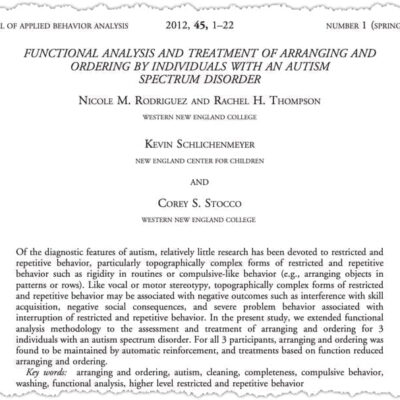3.3 Analytic Goal of Functional Contextualism
Relational Frame Theory is based on a philosophy of science known as functional contextualism1. In psychology, functional contextualists seek knowledge of how to both predict and influence psychological events2. When we are feeling frisky, we say that this is their analytic goal3 or the goal of their analyses.
Functional Contextualism
| Analytic Goal | Method |
|---|---|
| Prediction and influence of psychological events |
- Fox, E. J. (2006). Constructing a pragmatic science of learning and instruction with functional contextualism. Educational Technology Research & Development, 54 (1), 5-36.
- Gifford, E. V., and Hayes, S. C. (1999). Functional contextualism: A pragmatic philosophy for behavioral science. In W. O’Donohue and R. Kitchener (Eds.), Handbook of behaviorism (pp. 285-327). San Diego: Academic Press.
- Hayes, S. C. (1993). Analytic goals and the varieties of scientific contextualism. In S. C. Hayes, L. J. Hayes, H. W. Reese, and T. R. Sarbin (Eds.), Varieties of scientific contextualism (pp. 11-27). Reno, NV: Context Press.

Sounds like a powerful skill, predicting and influencing psychological event!